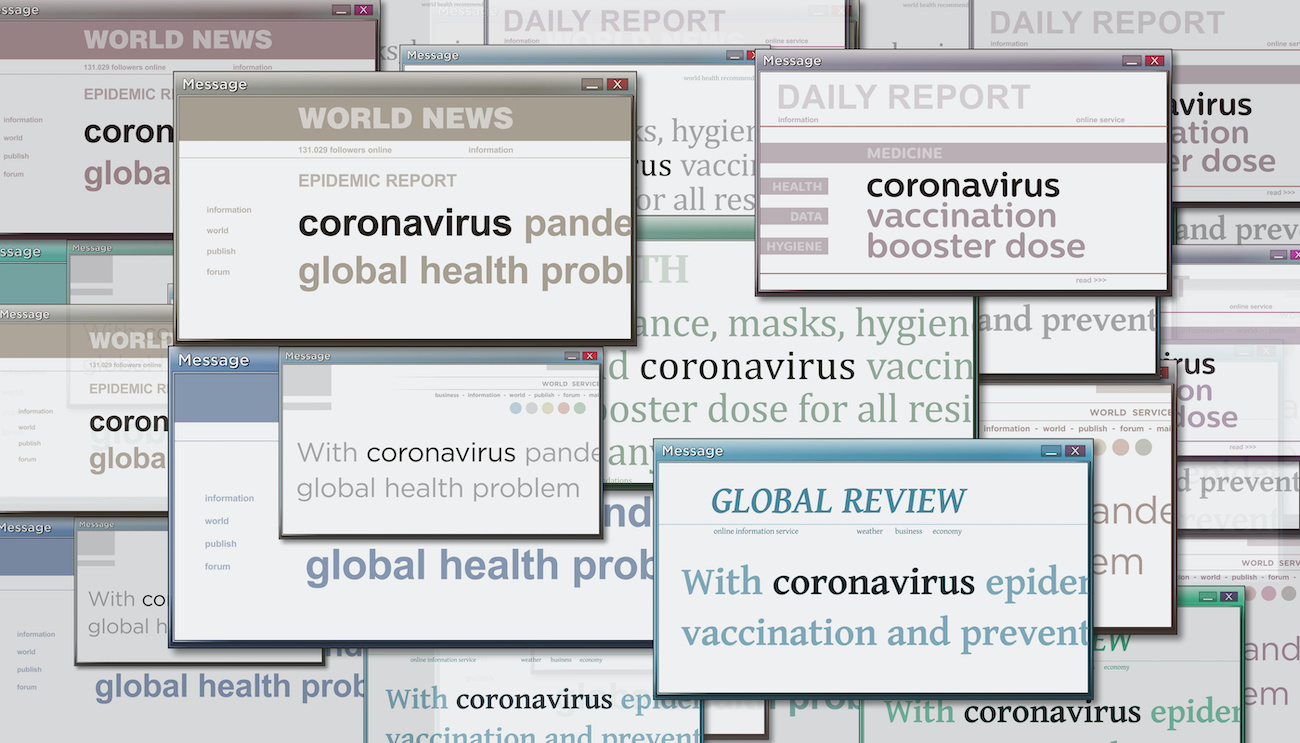In Brief: Taking to the Airwaves to Fight Misinformation; Rebranding the Self-Driving Car Industry
By Greg Beaubien
March 2022
Health Care Experts Take to Airwaves to Fight Misinformation
Some health care professionals feel they can’t rely on the news media or technology companies to counter misinformation, so they’ve been appearing on the news themselves and building brands as medical experts since the coronavirus pandemic began, Axios reports.
“It fills a void,” said Peter Hotez, dean for the National School of Tropical Medicine at the Baylor College of Medicine in Houston, who has appeared on TV-news shows almost daily since the pandemic started.
Tension between the health industry and media and technology companies has been building for years, “but it’s on a whole other level now,” said Celine Gounder, an infectious disease specialist at NYU who started a multimedia company about health care and social justice and appears frequently on TV.
“Part of the reason so many have stepped up is that they have felt this has become part of their job,” she said. “There’s a real need and urgency to engage in this in the public sphere.”
A Rebrand for the Self-Driving Car Industry
The top lobbying group for self-driving cars wants to clarify that the vehicles its member companies manufacture don’t require people to operate. Formerly known as the Self-Driving Coalition for Safer Streets, the Washington, D.C.-based lobbying group is rebranding itself as the Autonomous Vehicle Industry Association.
As The Verge reports, the industry is trying to distance itself from the term “self-driving,” which many observers associate with the automaker Tesla. Tesla’s “Full Self-Driving” feature controls some of the car’s functions on local roads but still requires human supervision. In contrast, “autonomous vehicles” can operate on public roads without any human intervention or supervision.
Waymo, a subsidiary of Google parent company Alphabet and a member of the lobbying group, reportedly decided against developing an advanced driver-assistance system like Tesla’s after becoming “alarmed” by drivers zoning out or falling asleep at the wheel. Ford says autonomous vehicles should use standardized visual cues to communicate their intentions to pedestrians, bicyclists and other drivers.
On Twitter, Humor Makes Brands Seem the Same, Report Finds
Brands that rely on humor and snark in their Twitter posts fail to distinguish themselves, a new report from the social media platform says. The findings suggest brands might benefit from Twitter messaging-strategies that don’t depend solely on humor, an approach that some users call outdated.
Survey respondents found little distinction between brands on Twitter, describing brand posts as typically being “playful” and “funny.” Brands have often used the same “social media archetypes” and even the same number of keywords and characters, Twitter’s report finds.
“Distinction is everything a brand needs to succeed on Twitter,” the company’s report says. “Revisit what seems right for your brand, not just what topics are trending or what other people are jumping on.”
When companies comment on sensitive topics, they should do so meaningfully and in ways authentic to their brand. Twitter summed up this advice for brands with a quote from William Shakespeare: “To thine own self be true.”
TikTok Ushers in a New Era of Tabloid Media
TikTok has spurred a new form of tabloid reporting. But rather than spread celebrity gossip, TikTok targets everyday people, such as Couch Guy or #WestElmCaleb.
In an article for The Conversation, Jenna Drenten, associate professor of marketing at Loyola University Chicago, discusses how TikTok is turning ordinary people into fodder for sensationalized, tabloid-like stories and memes. Like an investigative gossip reel, TikTok users collectively manufacture stories that can explode into epic dramas.
How did we get to the age of the TikTok tabloid? “I see it as an outgrowth of the dynamics of social surveillance: using digital technologies to keep a close watch on one another, while producing online content in anticipation of being watched,” Drenten writes.
This “always on” dynamic controls behaviors, as TikTok users have the power to orchestrate what others see, read and believe. Social surveillance means anyone can become tabloid news, beholden to TikTok’s tastemakers.
As Drenten notes, while platforms like Twitter, Instagram and Facebook enable users to tell stories, “TikTok enables users to create full-fledged narrative rabbit holes. A nugget of content can be collectively transformed into an epic drama.”



